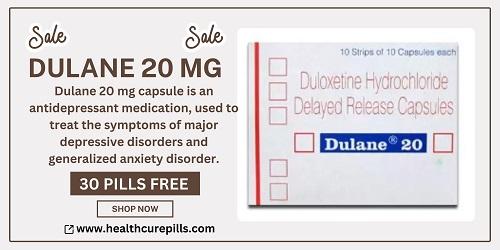Introduction
Exploring the Intersection of Depression and Self-Care
In the realm of mental health, depression stands as a significant and often complex challenge impacting individuals worldwide. Understanding the nuances of depression, from its symptoms to underlying causes, is crucial in fostering a compassionate and informed approach towards mental well-being. This article delves into the realm of depression and self-care, highlighting the pivotal role self-care plays in nurturing one’s mental health. By exploring effective self-care strategies, building supportive relationships, incorporating mindfulness practices, prioritizing physical health, and considering professional help options, individuals can embark on a journey towards holistic well-being amidst the challenges of depression.
Understanding Depression: Symptoms and Causes
Recognizing Symptoms of Depression
Feeling like a sad avocado that just can’t find its toast? That may be a sign of depression. Symptoms can include persistent feelings of sadness, loss of interest in activities, changes in appetite or sleep, and difficulty concentrating. It’s like your brain is playing an emotional game of hide and seek, but you can’t find the happy thoughts.
Potential Causes of Depression
Depression can sneak up on you like a surprise exam you didn’t study for. It can be caused by a combination of genetic, biological, environmental, and psychological factors. Stressful life events, imbalanced brain chemicals, and even that one rainy Tuesday where everything seemed to go wrong can contribute to the blues.

Importance of Self-Care for Mental Health
Self-care is like giving your mind a warm hug and a cozy blanket on a cold day. It’s essential for nurturing your mental health and well-being. Think of it as pressing the reset button on your brain, helping you recharge and face the world with a little more pep in your step.
Self-Care Strategies for Managing Depression
Establishing Daily Routines
Creating a routine is like giving your day a roadmap. It can provide structure and stability, helping you navigate through the fog of depression. Whether it’s making your bed in the morning or having a dance party in your pajamas, small routines can make a big difference.
Practicing Mindfulness and Relaxation Techniques
Mindfulness is like hitting pause on life’s hectic playlist and tuning in to the present moment. Techniques like deep breathing, meditation, or simply enjoying a cup of tea can help calm the storm in your mind. It’s like giving your brain a mini-vacation to a peaceful island.
Prioritizing Healthy Habits: Sleep, Nutrition, and Exercise
Sleep, nutrition, and exercise are the three musketeers of mental health. Getting enough shut-eye, fueling your body with nourishing foods, and moving your body can work wonders for managing depression. It’s like giving your brain the VIP treatment it deserves.

Building a Support System: The Role of Relationships
Identifying Supportive Relationships
Supportive relationships are like having a squad of emotional cheerleaders in your corner. They can provide empathy, understanding, and a listening ear when you need it most. Surround yourself with people who lift you up like a good meme on a bad day.
Effective Communication in Seeking Support
Communication is key in unlocking the door to support. It’s okay to reach out and share how you’re feeling with trusted friends, family, or mental health professionals. Opening up about what’s going on in your mind is like letting a little sunlight into a dark room – it can make all the difference.
So, remember, taking care of your mental health is just as important as taking care of your physical health. Prioritize yourself, practice self-care, and lean on your support system when you need it. You’ve got this!
Mindfulness and Meditation for Mental Well-being
Let’s talk about mindfulness and meditation – your brain’s BFFs in the journey to mental well-being. Picture this: you’re sitting cross-legged, eyes closed, focusing on your breath, ignoring that pesky to-do list for just a few minutes. That’s meditation – giving your mind a break from its wild gymnastics routine.
Mindfulness is like meditation’s cool sibling, teaching you to be present in the here and now, savoring each moment like the last slice of pizza. Both practices help in reducing stress, increasing self-awareness, and calming the chaos inside your head. So, why not give them a shot? Your brain will thank you!
Physical Health and its Impact on Mental Health
Understanding the Mind-Body Connection
Ah, the mind-body connection, where your brain and your bod do the tango and influence each other’s moves. When your physical health is on point, your mental health does a happy dance. It’s like a tag team – exercise releases those feel-good endorphins, boosting your mood and energy levels, while a healthy diet gives your brain the nutrients it needs to function like a boss.
Incorporating Physical Activity for Mental Wellness
Time to get moving! Whether it’s a brisk walk in the park, a dance party in your living room, or weightlifting like a champ, physical activity is your mental health’s BFF. Not only does it reduce symptoms of depression and anxiety, but it also improves your sleep, focus, and overall well-being. So, lace up those sneakers and sweat out those blues!
Seeking Professional Help: Therapy and Medication Options
Types of Therapy for Depression
Therapy isn’t just for unraveling life’s mysteries – it’s a powerhouse in treating depression. From cognitive-behavioral therapy (CBT) to interpersonal therapy and everything in between, these sessions are like a mental spa day, helping you untangle those knotty thoughts and emotions. So, why not chat it out with a pro? Your mind deserves the TLC.
Considerations for Medication in Treatment Plans
Medication – the unsung hero in the battle against depression. Sometimes, therapy needs a sidekick, and that’s where medication swoops in. SSRIs, SNRIs, MAOIs – a whole alphabet soup of options to tweak those brain chemicals and restore balance. But hey, everyone’s brain is unique, so it’s a personalized journey to find what fits you best. So, don’t be shy to explore this avenue with your doc. Your mental health is worth it!
Closing Thoughts
Empowering Mental Wellness Through Self-Care
In conclusion, prioritizing self-care is not just a luxury but a necessity when navigating the complexities of depression. By embracing self-care strategies, seeking support from loved ones, engaging in mindfulness practices, prioritizing physical health, and considering professional help, individuals can take proactive steps towards nurturing their mental well-being. Remember, self-care is a journey, not a destination, and each small step taken towards self-compassion and mental wellness is a triumph in itself. Let’s continue to prioritize self-care and empower ourselves to thrive amidst the challenges of depression.






